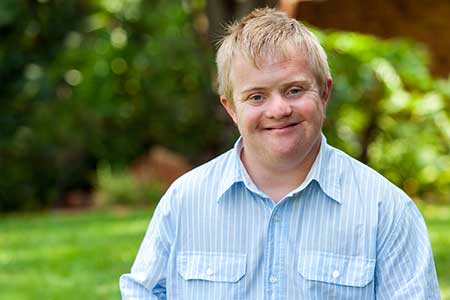
How To Get Guardianship for Loved Ones who have Intellectual Disabilities,and Why It Is Important

by Lauren Marinaro, Esq., Fink Rosner Ershow-Levenberg LLC, New Jersey
Updated August, 2020
Planning
Protecting
Preserving
your life's most valuable assets
We Can Do Your Medicaid Application. Our Firm has extensive experience in assembling, evaluating, preparing, presenting and defending Medicaid applications for our clients.
We Make House Calls
Learn more about:
How Guardianship protects health & assets
Medicaid Law and nursing home care
Are you the parent or caring adult of a child who has a developmental disability or is on the autism spectrum or is medically frail?
You do your best every day to encourage your child or loved one to be as independent as possible. Then their eighteenth birthday approaches and people start to ask you about going for Guardianship. You don’t want to think about Guardianship. You don’t want to have to share your child or loved one’s personal information with the court, you don’t want to face the expense of guardianship and after encouraging independence in your child or loved one for so long, you might feel guilty trying to become their Legal Guardian, even though you know that they really need one.
But if your child or loved one is going to be an adult registered in the Division of Developmental Disabilities (DDD) system, you really need legal Guardianship. You especially need good legal representation for the Guardianship matter if your child or loved one has any assets of their own so that the Guardianship process can be coordinated with obtaining Medicaid eligibility, which is now a requirement for all DDD enrollees.
Legal guardianship can be limited to certain areas.
For example, even if an individual is declared incapacitated, voting, choosing recreational activities, or making a Will, can be carved within the guardianship judgement so that the incapacitated person can still have certain spheres of autonomy.
Also, a person who is declared incapacitated can institute an action to be returned to capacity if their functional limitations improve over time. This “Return to Capacity” can again be partial or full–the person may want a conservator for financial matters, but has improved their executive functioning enough to make other decisions for themselves.
In the meantime, Guardianship is essential if your loved one lacks legal capacity and you are dealing with pretty much any third party, like a group home, medical provider, bank, or governmental agency. They all want to know that you have the authority to act for your loved one so that you can receive information and pay bills or give informed consent for a medical procedure, for example. Doctors, therapists, dentists and other providers are very concerned about who is giving consent for them to do their work and may refuse to provide their services in the absence of a legal guardian.
While there are form kits for pro se (do it yourself) guardianship complaints, it is valuable to have legal representation. DDD does allow a $2,000 up-front deduction from the incapacitated person’s income (which would likely otherwise go to his or her group home or other provider) as well as a 6% income deduction to pay for expenses related to legal guardianship. That can be used toward the cost of doctor’s reports, representation for the guardian, or paying the court-appointed attorney.
Whatever your family’s circumstance, the law firm of Fink Rosner Ershow-Levenberg LLC in New Jersey can assist with the spectrum of legal issues, whether they relate to legal guardianships, public benefits (including SSD, SSI, and Medicaid), wills, special needs trusts, powers of attorney, matrimonial matters, or real estate
and do so with sensitivity and optimism.
To make an appointment or speak to Lauren Marinaro, call 732-382-6070 or contact us online.
